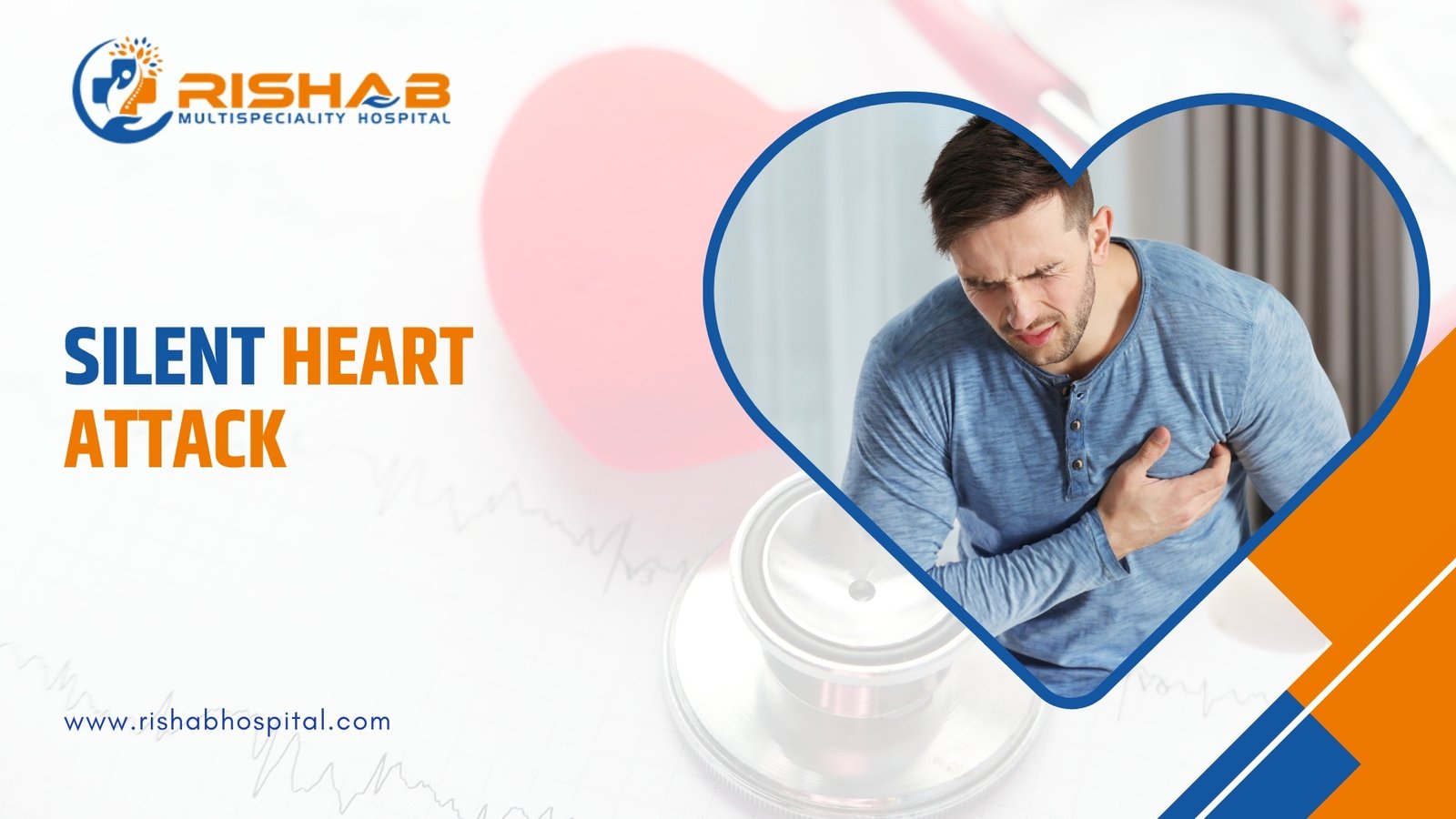

A Silent heart attack, also known as a silent myocardial infarction (SMI), is a heart attack that occurs without the typical or noticeable symptoms associated with a heart attack. People who experience a silent heart attack may not realize they are having one, which can lead to delayed treatment and increased risk of future cardiovascular problems.
Rishab Multispeciality Hospital is equipped to treat symptoms and treatment of heart conditions, ensuring that patients receive the most care possible throughout their treatment journey. Dr. Ashish Gupta is a Senior Interventional Cardiologist at Rishab Multispeciality Hospital in Jagatpura. As the best heart care hospital in Jaipur, we evaluate a patient's medical history, perform physical examinations, and perform diagnostic tests using an Electrocardiogram (ECG or EKG) to diagnose heart conditions. Our highly skilled interventional cardiologist and team deliver superior care and optimal outcomes for patients with complex cardiac conditions.
The causes of a silent heart attack are largely the same as a typical heart attack:
Unlike a typical heart attack with intense chest pain, a silent heart attack often presents with vague or mild symptoms, or sometimes no symptoms at all. Symptoms may include:
Because these symptoms are subtle, many people either ignore them or attribute them to other conditions, increasing the risk of more serious complications if untreated.
Silent heart attacks are often discovered incidentally during tests for other conditions. Diagnostic methods include:
Once diagnosed, the treatment of a silent heart attack is similar to that of a typical heart attack. It aims to prevent further heart damage, improve heart function, and reduce the risk of future heart attacks.
Preventive strategies focus on managing risk factors to reduce the likelihood of both silent and traditional heart attacks:
People who have had a silent heart attack are at higher risk for subsequent heart problems. However, many individuals can lead healthy, active lives with timely diagnosis and management. Regular medical check-ups are essential for monitoring heart health, especially for those with risk factors for heart disease.
While a silent heart attack may not have dramatic symptoms, it is just as dangerous as a typical heart attack. Awareness of subtle signs, understanding your risk factors, and maintaining a heart-healthy lifestyle can make a critical difference in preventing and managing this condition.
Rishab Multispeciality Hospital
🏥Address: NRI Choraha, Vishwa Vidhyalaya Nagar, Jagatpura, Jaipur, Rajasthan 302017
📧Email Id: Rishabhhospital01@gmail.com
📞Phone:- +91 96943 96943, 98291 62522, 0141 299 0544
🌍Website:- https://rishabhospital.com/
Facebook Page:- https://www.facebook.com/rishabmultispecialityhospital
Instagram Page:- https://www.instagram.com/rishabhospital/
Twitter:- https://x.com/rishabhospital
Youtube:- https://www.youtube.com/@RishabMultispecialityHospital


At Rishab Multispeciality Hospital, our primary focus is on delivering unparalleled multidisciplinary care to our patients. We are committed to leveraging state-of-the-art technology and harnessing expertise to ensure the highest standards of healthcare.
Rishab Hospital Choraha, Vishwa Vidhyalaya Nagar, Jagatpura, Jaipur, Rajasthan 302017